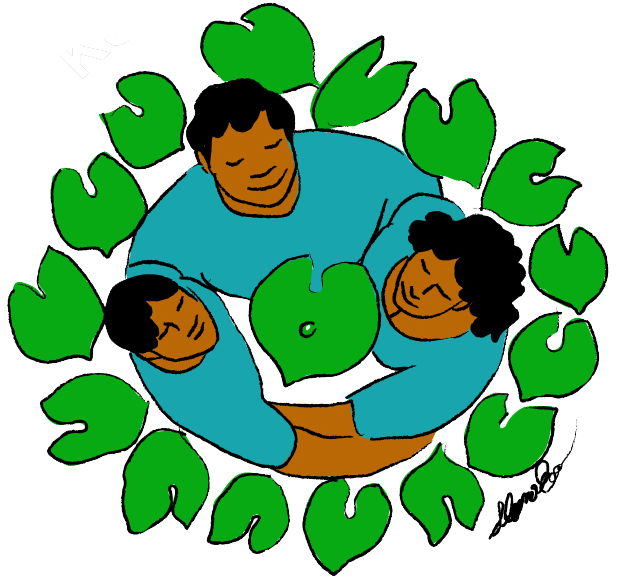Speaking Our Languages
Navigating virtual care and telehealth platforms are some of the new and innovative ways in which KKV continues to connect with patients
Kalihi has long been the first landing place for new immigrants to Hawai’i. The rich diversity of residents reflects the Pacific Island diaspora and the waves of immigration to our state that began in the 19th century. Today, KKV provides language interpretation services in 26 different languages and dialects, reflecting the complexity of caring for a population with so many cultures.
After 50 years of experience in grassroots, boots-on-the ground, and deeply relationship-based care, KKV experienced entirely new challenges during COVID, with the sudden introduction of telehealth or “virtual care”. Providers and patients alike had little-or-no no prior experience using telehealth platforms. While staff struggled in the beginning, medical assistants, providers, and patients were surprisingly creative in finding ways to communicate, using whatever platform worked in the moment: Facebook messenger, WhatsApp, phone calls, text, or dedicated telehealth software. At first, staff and patients often found this type of patient interaction uncomfortable. But in time, many staff and patients discovered that it created new opportunities to strengthen relationships and make healthcare more accessible. KKV’s kupuna patients readily jumped onboard (for the most part) during weekly “virtual” exercise sessions, when they could see their friends and socialize using a connected KKV-supplied tablets.
Going forward, KKV was fortunate to receive a highly competitive “Optimizing Virtual Care” grant from the US Health Resources Services Administration (HRSA), which funded a two-year project to assess, adapt, and develop best practices for using virtual tools across every clinical department and community program at KKV. We name the project “Speaking Our Languages”, to ground it in KKV’s holistic approach to health. Bernice Musrasrik, a former Ho’oulu ‘Aina Operations Manager, is now the Project Director. Our intention is to ensure that staff and patients across the organization can participate in creative ideation and ensure that these new technologies are appropriate to our community, non-exploitative, and truly supportive of overall health and access to care in Kalihi.
“Our organization has long modeled delivering care in a culturally safe way and our community deserves the same quality of care while navigating digital platforms.”
Bernice Musrasrik, Optimizing Virtual Care Project Director
“Our hope for this project,” says Bernice, “is that KKV will continue to wrap our community with well-deserved care, as they seek medical attention virtually. Our organization has long modeled delivering care in a culturally safe way, and our community deserves the same quality of care while navigating digital platforms. It is exciting to think of the outcomes of this project, which we are collectively envisioning:
A warm and welcoming intake area and intake processes, integrated data systems, user-friendly telehealth access, and effective communications messaging that respects the cultural values of this land and community.”
With so many new virtual technologies designed to expedite communication and connect us to each other and our neighbors, KKV is extremely cautious of the tendency of technology platforms to extract and monetize relationships. Our big questions: How do we make the best of telehealth and communications tools and remain grounded in culturally responsive care? How do we ensure that our patients and staff are shielded from predatory data mining and are able to use these new technologies to strengthen care practices that truly honor dignity and integrity? “Speaking Our Languages” gives KKV the opportunity to struggle and, as best we can, answer these questions, while building capacity across the organization, for healthy, just, and effective virtual care technologies.






